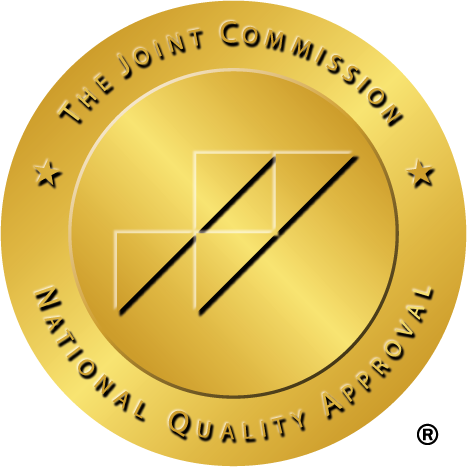KEY POINTS
- Acute psychiatric care provides intensive, around-the-clock support during severe mental health crises, offering a critical refuge and specialized interventions for recovery.
- Acute mental illness involves a sudden, severe onset of symptoms that significantly impair daily functioning, requiring immediate intervention to prevent harm and stabilize the individual.
- Individuals experiencing severe crises, such as thoughts of self-harm, acute psychosis, or anxiety disorders, benefit from this focused care. It's also crucial for those with severe mood swings or substance abuse issues.
- The benefits of acute psychiatric care include rapid stabilization, a safe environment, and comprehensive assessments.
- Acute psychiatric care establishes healthy routines and ensures 24/7 supervision to respond to any changes in condition.
- It encourages recovery with peer support, family involvement, and skills for managing future crises, alongside coordinated aftercare for a smooth transition back to community living.
When you’re facing a mental health crisis, you require more than just standard care. You need a safe haven where your well-being takes center stage, and professional help is available around the clock. That’s where acute psychiatric care comes in. This intensive form of treatment offers you a critical refuge during your most challenging moments and provides you with the specialized support and interventions you need to recover and rejoin your life. Acute mental health services can be a game-changer in your journey towards mental wellness.
Defining Acute Mental Illness
Acute mental illness refers to a sudden and severe onset of psychiatric symptoms that impair your ability to function in daily life.[1] These symptoms are very intense and typically require immediate professional intervention. Acute mental illnesses are characterized by:
- Rapid onset: Your symptoms can develop very quickly, often within days or even hours. You may experience a sudden and intense change in your mental or physical state. This makes it challenging to manage your daily responsibilities.
- Severity: The symptoms can be severe enough to interfere significantly with your work and social relationships.
- Duration: Although your episodes can be extremely intense, they may also be somewhat brief if you get treatment. With timely care, these episodes can resolve quickly, even though they can feel overwhelming in the moment.
- Urgent care: The nature of your symptoms often requires immediate medical attention. You may need urgent care or even hospitalization to stabilize your condition and manage your symptoms properly.
- Potential for harm: The severity of your symptoms might lead to dangerous behaviors or situations, so getting prompt help is crucial to avoid these risks.
Who Needs Acute Mental Health Care?
You may be in need of acute psychiatric care if you’re experiencing a severe mental health crisis that can’t be safely managed in a regular space.[2] If you’re grappling with thoughts of self-harm or suicidal ideation, experiencing severe mood swings, or battling overwhelming anxiety or depression, schizophrenia, or bipolar disorder, you may benefit from this type of focused care. If you’re dealing with acute psychosis, hearing voices, or having difficulty distinguishing reality from delusions, acute care is critical for your safety. You may also benefit from this level of care if you’re struggling with substance use disorder.
Benefits of Acute Mental Health Care
The benefits of acute psychiatric care are numerous.[3] It offers a lifeline if symptoms become overwhelming and potentially life-threatening.[4] Some of the benefits include:
- Rapid stabilization: Acute care provides immediate, intensive, and often inpatient treatment to stabilize you when you are experiencing severe symptoms. This can prevent further deterioration and reduce the overall duration of the crisis.
- Safe environment: The secure space offers protection if you’re at risk of harming yourself or others. It provides a place where you can focus on recovery without external stressors or dangers.
- Comprehensive assessment: The inpatient care setting allows for thorough, round-the-clock evaluation of symptoms, behaviors, and responses to treatment. This enables more accurate diagnoses and more effective treatment plans.
- Intensive treatment: You’ll receive a higher level of care than in outpatient settings, including therapy sessions, behavioral health interventions, medication management, and specialized treatments.
- Medication optimization: Clinicians can closely monitor the side effects of your medication and make rapid adjustments. This helps them find and dial in the most effective treatment regimen at a much quicker pace.
- Structured routine: The highly structured environment helps you establish healthy daily routines. This can be beneficial for many mental health conditions.
- Continuous monitoring: 24/7 professional supervision ensures immediate response to any changes in your condition.
- Focused healing: You can fully concentrate on recovery and developing coping skills.
- Peer support: Interaction with others who are facing similar challenges can reduce feelings of isolation and provide support and understanding.
- Family involvement: Acute care often includes family therapy and education. This helps you to build a stronger support system after discharge.
- Crisis management skills: You’ll learn and practice techniques for managing future crises. This may reduce the need for future hospitalizations.
- Coordinated aftercare: Discharge planning ensures a smooth transition back to community living, with appropriate follow-up care and support services in place.
New Waters Recovery is the Premier Integrative Detox and Assessment Center
New Waters Recovery deeply understands the complexities faced by those struggling with substance use and psychological issues. We offer personalized care for individuals battling with addiction and mental health challenges.
We utilize a range of proven, research-backed methods in our multidisciplinary approach to treatment. Our goal is to provide crucial support to both you and your loved ones as you embark on the first steps on the path toward wellness and recovery.
SPEAK WITH AN ADMISSIONS COUNSELOR TODAY
Related Topics
Frequently Asked Questions About Acute Mental Health Care
Sources
[1] Feriante, J. (2023, August 2). Acute and chronic mental health trauma. StatPearls [Internet]. Retrieved from https://www.ncbi.nlm.nih.gov/books/NBK594231/
[2][3] Johnson, S., Dalton-Locke, C., Baker, J., Hanlon, C., Salisbury, T. T., Fossey, M., Newbigging, K., Carr, S. E., Hensel, J., Carrà, G., Hepp, U., Caneo, C., Needle, J. J., & Lloyd-Evans, B. (2022, June). Acute psychiatric care: Approaches to increasing the range of services and improving access and quality of care. World psychiatry : official journal of the World Psychiatric Association (WPA). Retrieved from https://www.ncbi.nlm.nih.gov/pmc/articles/PMC9077627/
[4] Weber, C., Monero Flores, V., Wheele, T. P., Miedema, E., & White, E. V. (2022a, January 3). Patients’ health & well-being in inpatient mental health-care facilities: A systematic review. Frontiers in psychiatry. Retrieved from https://www.ncbi.nlm.nih.gov/pmc/articles/PMC8761847/
[5] Sussex Publishers. (n.d.). What to expect if you need inpatient hospitalization. Psychology Today. Retrieved from https://www.psychologytoday.com/us/blog/two-takes-on-depression/201911/what-to-expect-if-you-need-inpatient-hospitalization
[6] Kamalzadeh, L., de Filippis, R., El Hayek, S., Heidari Mokarar, M., Jatchavala, C., Koh, E. B. Y., Larnaout, A., Noor, I. M., Ojeahere, M. I., Orsolini, L., Pinto da Costa, M., Ransing, R., Sattari, M. A., & Shalbafan, M. (2023, December 18). Impact of stigma on the placement of mental health facilities: Insights from early career psychiatrists worldwide. Frontiers in psychiatry. Retrieved from https://www.ncbi.nlm.nih.gov/pmc/articles/PMC10773878/



